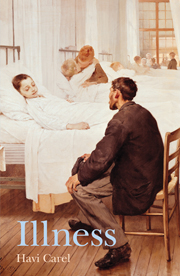Book contents
Preface to the revised edition
Summary
When I was diagnosed with a lung condition in 2006, my personal life and my life as a philosopher were split apart. The effect of the diagnosis on my personal life was enormous. I was told that my prognosis was poor (happily, that is no longer the case) and that I would have to use oxygen and possibly have a lung transplant. I was also told that I would be unable to have children. Everything I had until that point taken for granted was thrown into the air. I experienced extreme uncertainty and anxiety. I had to adjust to, and make sense of, a huge shift in my life plans and expectations and my day-to-day routine. “What does philosophy have to do with all this?”, I asked. At the time, I felt alienated from philosophy and angry at its abstract nature. My concerns were highly personal and idiosyncratic, but I nonetheless felt a demand placed on me as a philosopher to find concrete ways in which philosophy could help me cope with my illness. So I decided to take philosophy to task and see how philosophy might be used in the context of illness.
When I started reading the literature in the philosophy of medicine – where I thought I would find detailed analyses of the experience of illness – I realized that there is a serious oversight within mainstream philosophy, a failure to address the thing that matters most to ill people: how they feel, what they experience, how illness changes their lives. With the exception of a few authors such as S. Kay Toombs, Matthew Ratcliffe and Fredrik Svenaeus, the phenomenology of illness was largely untreated by philosophers. I thought that since illness is a profound and universal experience shared by almost all humans, philosophy ought to study it. However, when I started looking at the literature, I discovered that although philosophers have written much about death, illness has not received the same systematic treatment.
- Type
- Chapter
- Information
- Illness , pp. xiii - xxiiPublisher: Acumen PublishingPrint publication year: 2013



